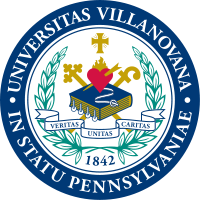What do they do?
Plan, direct, or coordinate investment strategy or operations for a large pool of liquid assets supplied by institutional investors or individual investors.
Also known as:
Fixed Income Portfolio Manager, Fixed Income Vice President (Fixed Income VP), Investment Analysis Vice President (Investment Analysis VP), Portfolio Manager
-
15.5%
Change
Ranks #48 in job growth rate2,080Job Openings
Ranks #10 in net job growth
-
University of Pennsylvania
Philadelphia, PA
-
University of Notre Dame
Notre Dame, IN
-
Boston College
Chestnut Hill, MA
-
Bentley University
Waltham, MA
-
Villanova University
Villanova, PA
Looking for colleges that offer a specific major? Use the College Match Tool to find your best-matched schools and discover your estimated Net Price!
- Doctorate or Professional Degree (2%)
- Master's degree (20%)
- Bachelor's degree (42%)
- Associate's degree (8%)
- Some college, no degree (17%)
- High school diploma equivalent (10%)
- Less than high school diploma (1%)
Most Popular Majors that prepare Investment Fund Managers
-
#1
-
Degrees Granted
42,516
-
Female Students
12,188
-
Male Students
30,328
-
Median Starting Salary
$39,100
-
-
#2
-
Degrees Granted
805
-
Female Students
338
-
Male Students
467
-
Median Starting Salary
$52,800
-
-
#3
-
Degrees Granted
626
-
Female Students
378
-
Male Students
248
-
Median Starting Salary
$45,200
-
-
#4
-
Degrees Granted
91
-
Female Students
27
-
Male Students
64
-
Median Starting Salary
$39,100
-
-
#5
-
Degrees Granted
17
-
Female Students
6
-
Male Students
11
-
Median Starting Salary
$39,100
-
People in this career often have these skills:
- Reading Comprehension - Understanding written sentences and paragraphs in work-related documents.
- Active Listening - Giving full attention to what other people are saying, taking time to understand the points being made, asking questions as appropriate, and not interrupting at inappropriate times.
- Critical Thinking - Using logic and reasoning to identify the strengths and weaknesses of alternative solutions, conclusions, or approaches to problems.
- Speaking - Talking to others to convey information effectively.
- Judgment and Decision Making - Considering the relative costs and benefits of potential actions to choose the most appropriate one.
- Active Learning - Understanding the implications of new information for both current and future problem-solving and decision-making.
- Complex Problem Solving - Identifying complex problems and reviewing related information to develop and evaluate options and implement solutions.
- Writing - Communicating effectively in writing as appropriate for the needs of the audience.
- Monitoring - Monitoring/Assessing performance of yourself, other individuals, or organizations to make improvements or take corrective action.
- Mathematics - Using mathematics to solve problems.
- Systems Analysis - Determining how a system should work and how changes in conditions, operations, and the environment will affect outcomes.
People in this career often know a lot about:
- Economics and Accounting - Knowledge of economic and accounting principles and practices, the financial markets, banking, and the analysis and reporting of financial data.
- English Language - Knowledge of the structure and content of the English language including the meaning and spelling of words, rules of composition, and grammar.
- Mathematics - Knowledge of arithmetic, algebra, geometry, calculus, statistics, and their applications.
- Customer and Personal Service - Knowledge of principles and processes for providing customer and personal services. This includes customer needs assessment, meeting quality standards for services, and evaluation of customer satisfaction.
People in this career often have talent in:
- Deductive Reasoning - The ability to apply general rules to specific problems to produce answers that make sense.
- Oral Comprehension - The ability to listen to and understand information and ideas presented through spoken words and sentences.
- Written Comprehension - The ability to read and understand information and ideas presented in writing.
- Oral Expression - The ability to communicate information and ideas in speaking so others will understand.
- Inductive Reasoning - The ability to combine pieces of information to form general rules or conclusions (includes finding a relationship among seemingly unrelated events).
- Information Ordering - The ability to arrange things or actions in a certain order or pattern according to a specific rule or set of rules (e.g., patterns of numbers, letters, words, pictures, mathematical operations).
- Mathematical Reasoning - The ability to choose the right mathematical methods or formulas to solve a problem.
- Written Expression - The ability to communicate information and ideas in writing so others will understand.
- Problem Sensitivity - The ability to tell when something is wrong or is likely to go wrong. It does not involve solving the problem, only recognizing that there is a problem.
- Speech Clarity - The ability to speak clearly so others can understand you.
- Number Facility - The ability to add, subtract, multiply, or divide quickly and correctly.
- Near Vision - The ability to see details at close range (within a few feet of the observer).
- Speech Recognition - The ability to identify and understand the speech of another person.
- Fluency of Ideas - The ability to come up with a number of ideas about a topic (the number of ideas is important, not their quality, correctness, or creativity).
- Originality - The ability to come up with unusual or clever ideas about a given topic or situation, or to develop creative ways to solve a problem.
- Category Flexibility - The ability to generate or use different sets of rules for combining or grouping things in different ways.
- Flexibility of Closure - The ability to identify or detect a known pattern (a figure, object, word, or sound) that is hidden in other distracting material.
People in this career often do these activities:
- Direct financial operations.
- Monitor financial activities.
- Monitor financial indicators.
- Approve expenditures.
- Implement organizational process or policy changes.
- Develop organizational policies or programs.
- Analyze forecasting data to improve business decisions.
- Advise others on business or operational matters.
- Monitor organizational procedures to ensure proper functioning.
- Communicate organizational information to customers or other stakeholders.
- Maintain knowledge of current developments in area of expertise.
- Coordinate with external parties to exchange information.
- Evaluate potential of products, technologies, or resources.
- Determine operational compliance with regulations or standards.
- Evaluate employee performance.
- Hire personnel.
- Monitor external affairs or events affecting business operations.
- Examine financial records to ensure compliance with policies or regulations.
- Examine marketing materials to ensure compliance with policies or regulations.
- Develop promotional materials.
- Direct sales, marketing, or customer service activities.
- Identify potential customers.
- Direct organizational operations, projects, or services.
This page includes data from:

 Occupation statistics: USDOL U.S. Bureau of Labor Statistics Occupational Employment Statistics
Occupation statistics: USDOL U.S. Bureau of Labor Statistics Occupational Employment Statistics
 Videos: CareerOneStop, USDOL/ETA and the Minnesota Department of Employment & Economic Development
Videos: CareerOneStop, USDOL/ETA and the Minnesota Department of Employment & Economic Development









